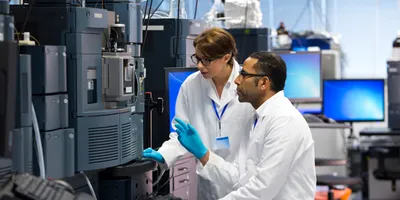All labs depend on people to create the technical outcomes that are needed by the supporting stakeholders. Yet, many lab managers are troubled by the level of accountability they see in their staff. Accountability is essentially who will answer the key questions if there is a problem or concern with the work. While the lab manager is accountable for the overall performance of the lab, individual scientists are accountable for the work they complete, review, and approve. Raising the level of staff accountability will lead to improved overall lab performance. Here are three tips to increase accountability in the lab:
#1 – Expectations
Staff can only deliver to the expectations that have been clarified for them. Set effective SMART (specific, measurable, achievable, realistic, and timely) objectives that correspond to their roles and help them earn the autonomy to meet or exceed those goals in ways that work for them. The absence of clear expectations means they are unsure of the path to success in their roles or for the lab. The absence of effective objectives shifts the root cause of accountability from the staff to management. No one can be accountable for goals they don’t understand.
#2 – Ownership
To be accountable, staff require some level of independence. If someone else is constantly looking over their shoulder, making key decisions, and doing key aspects of the work, then that person is accountable for the outcomes. Micromanagers take the responsibility and the accountability away from lab staff. Ownership is a great way to provide an appropriate level of accountability. Everyone can own something. The level of accountability is scaled to their ability to deliver. The owner then needs to make the key decisions about how and when the work is accomplished. Pride of ownership will deliver an increase in accountability.
#3 – Consequences
Consequences are required for staff to have accountability. If there are no consequences, there is no accountability. Consequences don’t need to be severe, but they must be accompanied by coaching and constructive feedback to address issues and resolve problems. This requires sufficient psychological safety so that staff will share the errors, problems, and challenges they face in their work, allowing them to seek help and ensure the work is completed to the expected level of quality. Investing in staff to help them grow will increase the amount of accountability they can deliver. If individuals consistently fail to deliver, then a performance improvement plan will dictate whether they can remain employed in the lab.
Increasing the level of accountability in the lab is grounded in building trust, responsibility, and development. Enabling staff to learn lab activities well enough to own them and giving them the opportunity to earn trust to deliver them to the lab will help them grow and develop as scientists. Increased accountability also brings greater motivation and engagement. As staff have more control and mastery over their work, they perform better and deliver more consistently.














